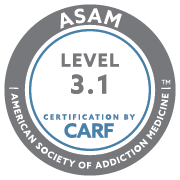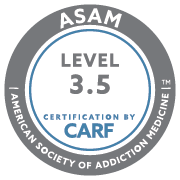Not a day goes by that you open the local paper or watch the news or hear about a crime that was committed related to drugs. It’s a sad reality that unfortunately has become our new normal. The even crazier reality is that in a world where we treat addiction, alcohol remains at the top of the list as the drug of choice for the clients we serve. Wait, what!?! Yep, that’s right, methamphetamines is the number two drug of choice and opioids comes in at the number three drug of choice.
So you might ask yourself, what is the difference between alcoholism and binge drinking? We all know of someone who enjoys “too many” cocktails, but binge drinking is actually not a chronic disease and alcoholism is no longer a term used in the clinical world. Alcohol Use Disorder is a chronic disease characterized by uncontrolled drinking and pre-occupation with alcohol. It’s determined by a licensed clinician when a person is unable to control their drinking due to both physical and emotional dependence on alcohol. According to the National Institute on Alcohol Abuse and Alcoholism (NIH), over 14 million adults were diagnosed with Alcohol Use Disorder in 2018. An average of almost 8% received treatment. That matches our state statistics of less than 10 percent of those who suffer from addiction who are actually seeking treatment.
We sometimes see our clients who suffer from Alcohol Use Disorder to be “high functioning”. They maintain a job, their family, their hobbies … until they don’t. The crazy thing about this disease is that it will eventually catch up with the person who suffers from the illness. We see that they become late or miss work, start to miss out on social activities and tend to isolate, and even start to pull away from friends and family. This is all a part of the disease and the dependence on alcohol. The hard truth is that this disease not only impacts the person but their entire family.
Alcohol can be a very dangerous substance to withdraw from. Someone who is dependent on alcohol might experience a rapid heart rate, elevated blood pressure, tremors, seizures, auditory or visual hallucinations, or even delusions. If someone suffers from alcohol dependence the safest option for them to withdraw is in a medical detox facility.
We also know that excessive alcohol use is really hard on the body. Those that use excessive amounts of alcohol are at risk of heart disease, liver damage, increased risk of cancer, and mental health issues. While using alcohol a person has decreased inhibitions and may demonstrate impulsive behaviors, motor impairment, memory issues, and concentration problems. This may lead to social issues that include drinking and driving, verbal and physical altercations, and strain on one’s spiritual beliefs.
Families tell us their loved one has “become a different person.” They report that their loved ones who once told the truth now lie. They don’t show up for activities. They don’t follow through with commitments they previously would have never missed. All the while, the person suffering from alcohol dependence has feelings of shame and guilt, continues to drink, and the cycle repeats itself.
So, the next time you open the paper and read about all of the crime associated with meth and the headlines related to opioids, don’t let that overshadow the silence behind one of the most powerful and attractive substances called alcohol. Alcohol Use Disorder is slowly killing our loved ones and impacting their families in a very painful way. Don’t be afraid to talk about it and find help for those who are wanting to change.
If you are interested in how Rimrock can help you or a loved one start the journey to recovery, we are excited to talk to you. Our Admissions Department can be reached at (406) 248-3175 or (800) 227-3953. Normal admission hours are between 8:00 am and 5:00 pm Mountain Time, Monday through Friday. However, we do have staff available anytime to take your call. Contact us today to begin your journey to recovery.





